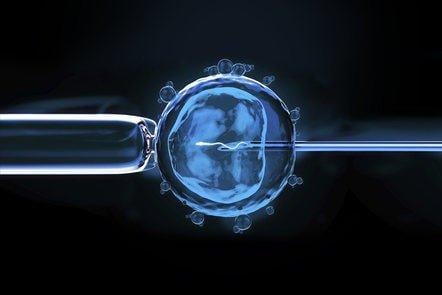MOOC List is learner-supported. When you buy through links on our site, we may earn an affiliate commission.

MOOC List is learner-supported. When you buy through links on our site, we may earn an affiliate commission.
As you explore human reproduction in the age of technology, you’ll explore the social, ethical, and legal challenges of powerful new genetic techniques creating new opportunities in the field of reproduction.
Learning with experts at UCL’s Institute for Women’s Health, you’ll explore how technology is changing the way babies are made and family life is constructed, appreciate the key ethical dilemmas that these new technologies bring, and gain awareness of the social aspects of the relevant ethical challenges.
Syllabus
Week 1: Seeking fertility
Week 2: Freezing eggs
Week 3: Using gametes
Week 4: Crossing borders
Week 5: Genetic testing
Week 6: Genome editing
Learning on this course
You can take this self-guided course and learn at your own pace. On every step of the course you can meet other learners, share your ideas and join in with active discussions in the comments.
What will you achieve?
By the end of the course, you'll be able to...
- Following the course, learners will be able to synthesise information from a number of different fields.
- Critically assess the accuracy and value of information about assisted fertility that is provided in the public domain (i.e., on the internet).
- Be able to confidently contribute to the vital societal conversation around the use of reproductive and genetic technologies.
- Demonstrate knowledge of the science and ethics-legal aspects of assisted fertility.
- Develop a deeper understanding of the ways in which fertility medicine is changing the way babies are born and the way families are constructed.
- Be able to explain how each of the technologies covered in the course are changing the way people think about fertility and families.
- Be able to reflect critically on the advantages and disadvantages of the new reproductive technologies.
Who is the course for?
This course is designed for anyone interested in learning more about reproductive technology, including medical and healthcare students, clinicians and nurses working in women’s health, scientists and biotechnologists involved in reproductive technology and medicine, and couples and individuals seeking advice and information about assisted reproduction.
Healthcare professionals might find the Certificate of Achievement for this course useful for providing evidence of Continuing Professional Development (CPD), or commitment to their career.
MOOC List is learner-supported. When you buy through links on our site, we may earn an affiliate commission.
MOOC List is learner-supported. When you buy through links on our site, we may earn an affiliate commission.
